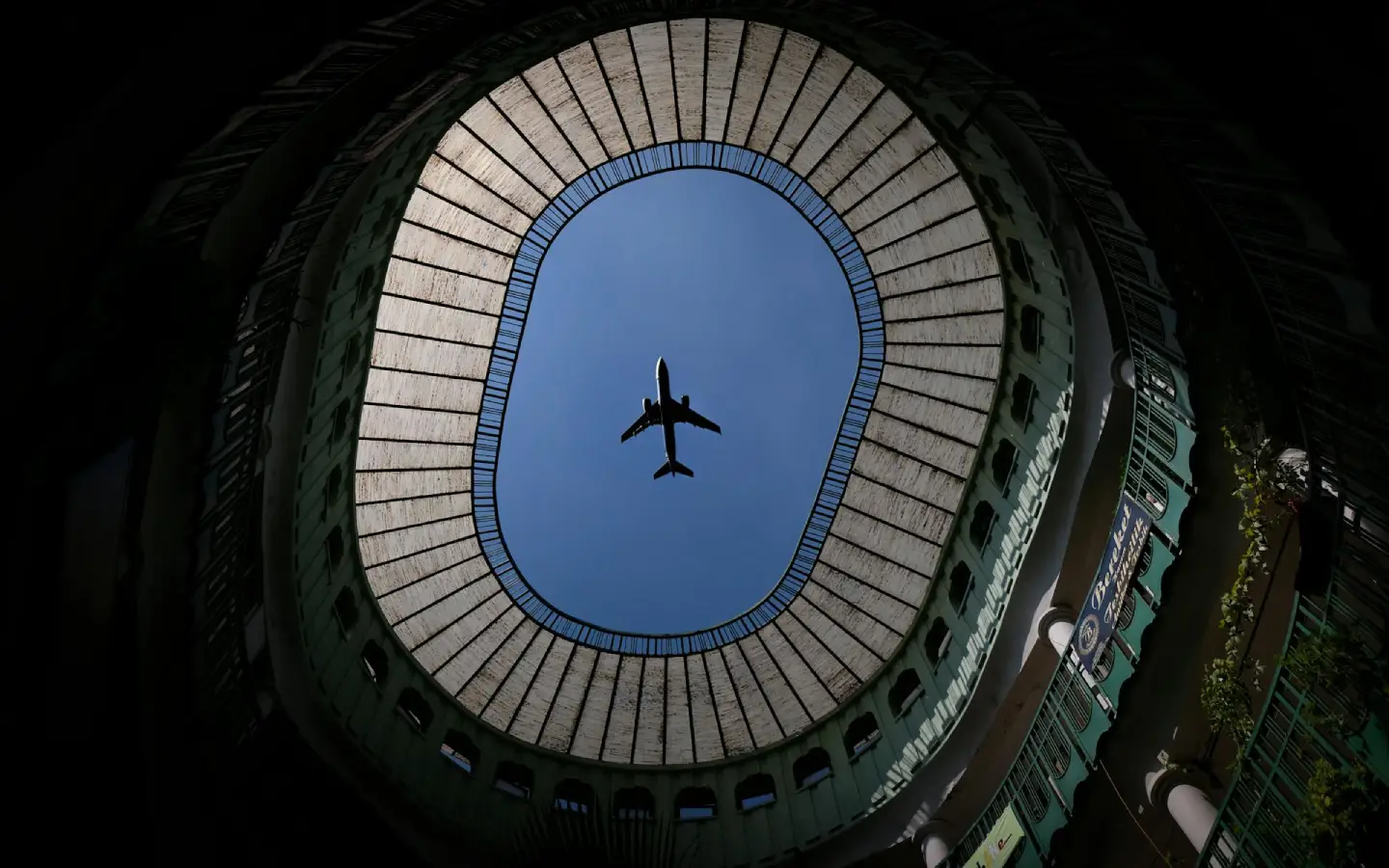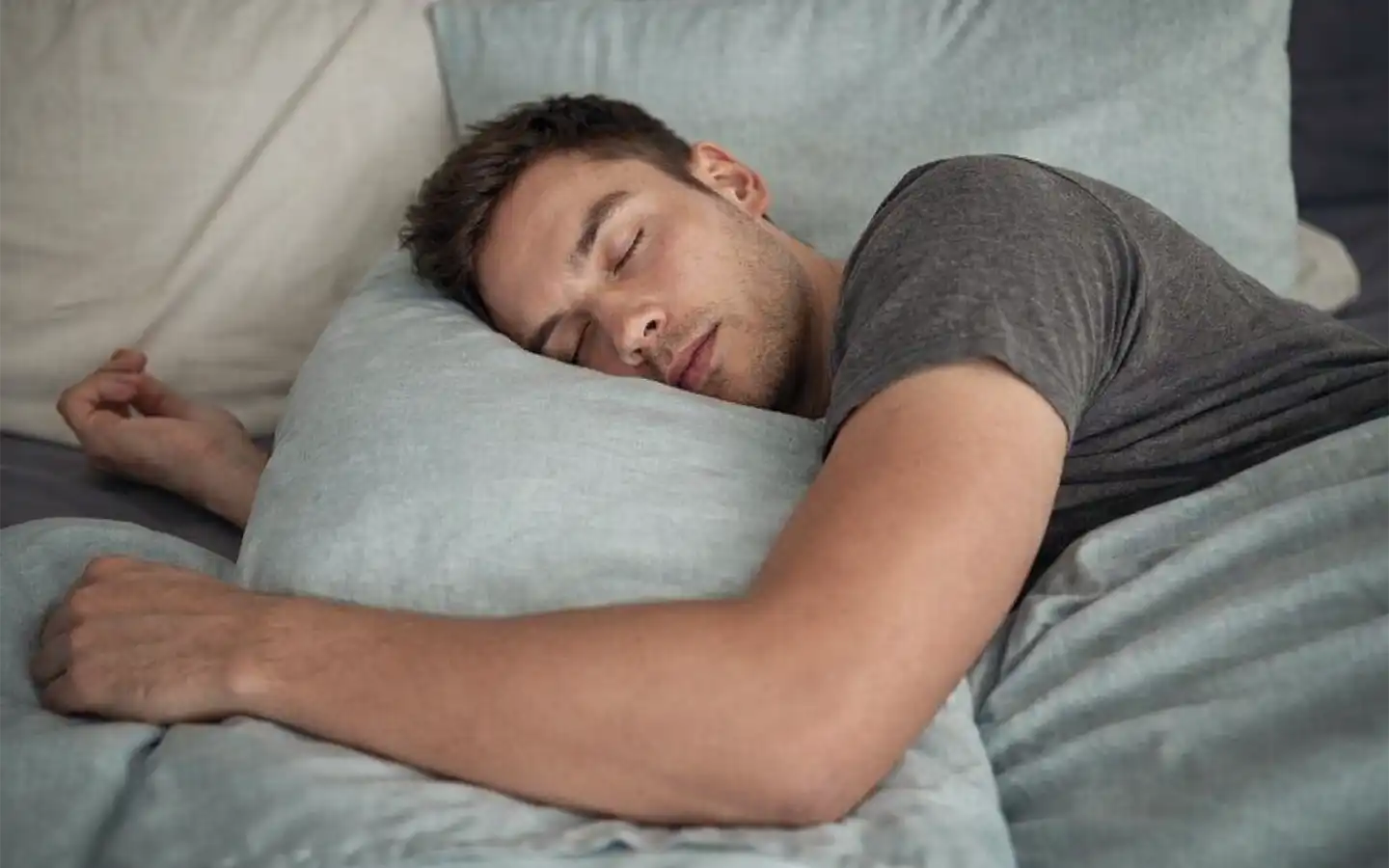November 3, 2025
How to Get Over Jet Lag and Sleep Well When You Travel
We all love the thrill of travel, but let’s be honest: that first day after a long flight can be brutal.
If you’ve ever been jet lagged, you know how disorienting it feels. You might be exhausted but unable to sleep, or wide awake when everyone else is heading to bed. Even basic things like focusing or enjoying a meal feel harder when the whole system is simply out of sync.
The good news is, jet lag doesn’t have to ruin your trip.
In this article, we’ll explain what really happens to your body when you travel across time zones, how to get over jet lag faster, and how Kimba can help your system find rest and balance again.
What Jet Lag Really Is
Jet lag happens when your circadian rhythm, or your body’s 24-hour clock, no longer matches the time zone you’re in. This rhythm is guided by light and darkness and controls much more than sleep. It influences hunger, energy, body temperature, and the release of hormones like melatonin, which signals your brain it’s time to rest. When you travel across time zones, your internal clock becomes totally mismatched with the local time, causing a short-term disruption in how you sleep, eat, and think.
In simple words, your internal clock still wants to run on "home time," but it is forced to adjust to local time, which can take some time. For most people, you can count on needing about one day for each time zone you cross to recover from jet lag. Until then, you might feel extremely tired, unfocused, or restless.

How Jet Lag Affects You
Many people start their trip already short on sleep, which is not a good idea if you are trying to prevent jet lag. The night before a trip is often a scramble of last-minute packing and pre-trip stress (or excitement), all of which make it harder to rest. That makes jet lag hit harder.
The direction you travel also matters. Jet lag feels worse when you "lose" time by flying eastward because you are forced to fall asleep earlier than you’re used to. Flying westward is generally considered easier, since you “add” hours to your day, and most people find it easier to stay up later than usual, rather then go to bed too early. No matter which direction you travel, some symptoms of jet lag are likely to occur.
Common symptoms of jet lag include:
- headaches, brain fog, and trouble focusing
- daytime fatigue or sleepiness
- irritability or low mood
- changes in appetite
- digestive discomfort
- decreased sleep quality
These symptoms usually fade away as soon as your internal clock adjusts to a new local time, but it’s possible to help that process go more smoothly.
[CTA_INSERT]
How to Get Over Jet Lag
If you want to get rid of jet lag before it ruins both your sleep and your trip, here’s what you can do.
1. Adjust your sleep schedule before you travel
Having a consistent sleep schedule you stick to is one of the best ways to keep your circadian rhythm stable and maintain good sleep quality. If you are able to plan in advance, consider shifting your sleep and wake times a few days before your trip to match the one you will have at your destination. Even gradual changes (15 to 30 minutes) in your sleep time can help your body adapt faster once you arrive.
You can use a jet lag calculator to determine the optimal time to start shifting your sleep schedule.
2. Avoid long naps
Once you arrive at your destination, try to stay awake until local bedtime. If you need to nap, keep it short (around 20 minutes) and try to stay awake until local bedtime. Caffeine can help you get there, but you should finish your last coffee for the day at least 6-7 hours before your target bedtime.
3. Stay hydrated
Staying hydrated is always important, but this is especially true when you travel. Low humidity, caffeine, and alcohol all worsen dehydration, which can amplify fatigue and headaches. Drink water during the flight and after landing.
Interestingly enough, some travelers find that short water fasts (drinking only water for 12–16 hours) may help with jet lag by potentially resetting the internal clock and giving the digestive system a break from the stresses of flying.
4. Use light to reset your sleep
Light is one of the strongest signals for your internal clock and sunlight in particular is the best way to influence your sleep-wake timing. Once you arrive at your destination, try to get as much natural sunlight during the local morning and reduce exposure in the evening. That also means turning off any bright lights in your room and putting screens away at least an hour before bed.
5. Don’t skip your sleep routine
Your body has its own patterns when it comes to being ready to sleep. Follow the same wind-down routine you follow at home, whether that's reading, journaling, stretching, or breathing techniques that help you fall asleep faster. Bringing a sleep mask, earplugs, or your own sleepwear can also help you relax in a new environment.
6. Use relaxation techniques to beat jet lag
Calming your nervous system can help you fall asleep easier wherever you are.
The 4-7-8 is one of the best ways to help you fall asleep more easily. You inhale for 4 seconds, hold for 7, exhale for 8, and repeat at least 4 times until you are ready to sleep. The long exhale slows your heart rate, while the pause or holding your breath calms the body’s stress response.
We covered the best techniques to fall asleep fast already, if you want to read more.
7. Consider melatonin supplements for short-term help
Low-dose melatonin may help your body realign to the new time zone. It works best when used 1-2 hours before local bedtime. If you have tense muscles or feel exhausted, magnesium can help too.

How Kimba Can Help You Sleep Even If You Travel Often
Even when you do everything right, your body still needs time to adapt – and that’s where personal limbic therapy with Kimba helps.
Kimba connects to your wearable device to monitor your biometric signals in real time (such as HRV, restlessness, and stress levels). As soon as it detects that your nervous system is tense or overstimulated, Kimba releases a targeted microburst of scent designed to support the limbic system, the brain area that governs emotion, safety, and relaxation.
This scent-based response helps your body shift out of alert mode and into rest, even when you’re sleeping in a new environment. It acts as a sensory anchor, reminding your brain that it’s safe to relax. For frequent travelers, that familiarity can be the difference between a restless night and true recovery.
Whether you travel once a year or every week, Kimba helps your nights feel more familiar again.
Join our waitlist and experience how scent-based sleep support can help you rest deeply, anywhere.
What to Remember
- Jet lag is your body trying to realign with a new schedule.
- You can help it by combining light exposure, movement, hydration, and consistency.
- Real recovery happens when your body feels safe and ready to sleep. Kimba can help you relax and sleep deeply, improving your overall sleep quality.
- If you travel often, Kimba helps make rest feel familiar again, no matter where you wake up.


Continue reading

Parasomnias and Why Sleep Becomes Unstable at Night

What is REM Sleep And How to Increase It Naturally


